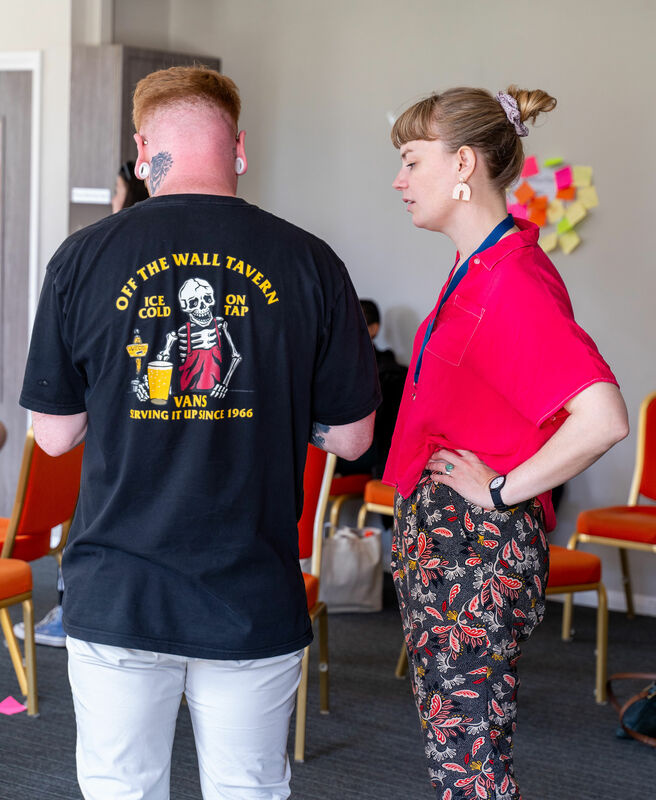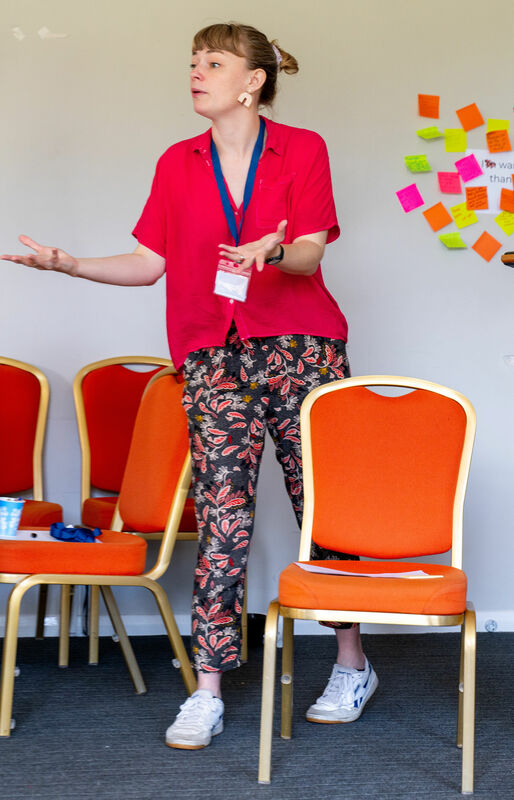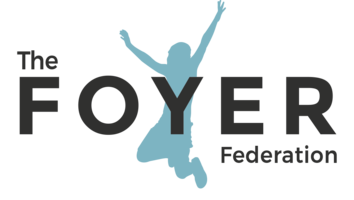Ella Craddock, Programme Manager at The Foyer Federation, explains what Restorative Practice is and why it has been a focus for the team over the last few months.

A need from our network and beyond
Restorative Practice has been around for decades, but in recent months we have noticed increasing enquiries about the approach from both within and outside our network of member Foyers. We have been asked to review new restorative practice procedures, had requests for training and have had conversations with Foyer staff about the need to change their ‘warning systems’ to better support the varied needs of their residents. In addition, the new Ofsted requirements for supported accommodation providers is explicit that services should have a Behaviour Management Policy, which sets out how conflict is being prevented and that staff are trained in ‘effective conflict management and conflict resolution’.
So here was an opportunity for The Foyer Federation to help - supporting Foyers to create safe, Advantaged Thinking environments for the young people they serve.
What is restorative practice and what does it have to do with Advantaged Thinking?
Traditionally services and wider society is structured around a punitive model of managing conflict. There is a ‘victim’ and a ‘perpetrator’, the focus is on what ‘rules have been broken’ and therefore what the punishment should be. Restorative practice offers an alternative lens to view these situations, which instead focuses on how to restore the harm caused and looks to be person-centred. We know that situations are rarely black and white. People can be both the perpetrator and the victim within a conflict, situation or relationship. Restorative practice offers a more nuanced way of solving conflict which is reflective of the complexities of the real world. It allows all those involved to feel heard, with opportunities to learn how to problem solve and restore relationships, with solutions being generated with people, rather than happening to them.
Restorative Practice reflects our asset-based framework of working: Advantaged Thinking. In Advantaged Thinking we focus on the things people are able to do – on their strengths and resources, rather than their deficits or circumstances, and in doing so we enable people to grow and flourish. Adopting restorative techniques is a way to do this in practice and something we advocate for across our network and beyond!

How did we create the training package?
We wanted to create a package which would be relevant to those working directly with young people, while making sure it met the express needs of our network.
Staff interested in restorative practice were invited to an exploration and information gathering session online, where Foyer Federation staff led a series of reflective activities to understand what to include in learning resources and the best methods of delivery. We took these ideas away, consulted with experts, researched and found insight of best practice from across our network. Staff were then invited back to a ‘pilot’ workshop, where we shared the first draft of the training package. The Foyer Federation tested out activities, attendees gave feedback on what worked and areas for improvements. Most importantly, staff had resources to take away to implement restorative practice approaches in their own services. Once again we, at The Foyer Federation, used these insights to reflect on, review and update the training ready for the first full day training session delivered in early November 2023.
What’s included in our Restorative Practice training package?
Staff were clear that the training package should include practical resources for practitioners to use in their day to day work, while also having space to reflect on how a service might embed the approach into their policies and procedures. Above all the training is a safe space to learn and reflect with interactive activities and practical tools to take away.
Here are the training outcomes:
- Identify the differences and benefits of restorative practice in comparison to traditional ‘behaviour management’
- Explore the challenges of implementing a restorative practice approach
- Gain new tools and skills to embed restorative approaches in your services
- Explore best practice examples of applying restorative practice to your organisation

Feedback from the training:
What did you value most from the training?
‘The restorative meeting worksheet has helped me to gain skills for my role’
‘The chance for reflection and discussion’
‘The tools to use in practice’
Interested in learning more about Restorative Practice?
If you would be interested in having training for your team on Restorative Practice we are now taking bookings for 2024! Please complete our training enquiry form to start the conversation.

